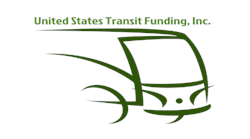United States Transit Funding Inc. Launches iPassenger
United States Transit Funding Inc. announced that it has launched its iPassenger mobile application platform for the passenger transportation and transit industry.
As a part of its commitment to the industry, the company has announced that its iPassenger product line is available for Android, Windows and Apple tablet and handheld devices.
“We are pleased to announce that our iPassenger platform is available for private companies and public transit systems who are seeking to extend their market reach, grow revenues and increase profits while enhancing passenger and public safety,” said Barry Lewis, CEO of United States Transit Funding Inc. “The primary goal of iPassenger is to continue to support our mission of continuing to grow revenues while disseminating and sharing timely and accurate information related to passenger and public safety.”
Through an executed Memorandum of Agreement with the Department of Homeland Security, iPassenger delivers information including weather and road conditions based on geographic location as well as law enforcement alerts helping mitigate passenger and public safety risks.
“Since the beginning of the year, we have raised the bar in addressing and mitigating any and all risks related to passenger and public safety and we could not be pleased more with the opportunity to work with the Department of Homeland Security," said Lewis. “Because of two Department of Homeland Security systems, passengers and companies will receive the kind of information that will help passengers ‘see something and say something’ as well as help companies mitigate passenger and public safety risks.”
Lewis added that the existing ePassenger technology system also integrates with the iPassenger mobile application platform.
“This is an end-to-end technology solution that allows all passenger transportation consumers to do business with your company,” Lewis said. “Between iPassenger© and ePassenger©, this solution would allow your company to compete with all modes of transportation as well as companies like Uber.”


